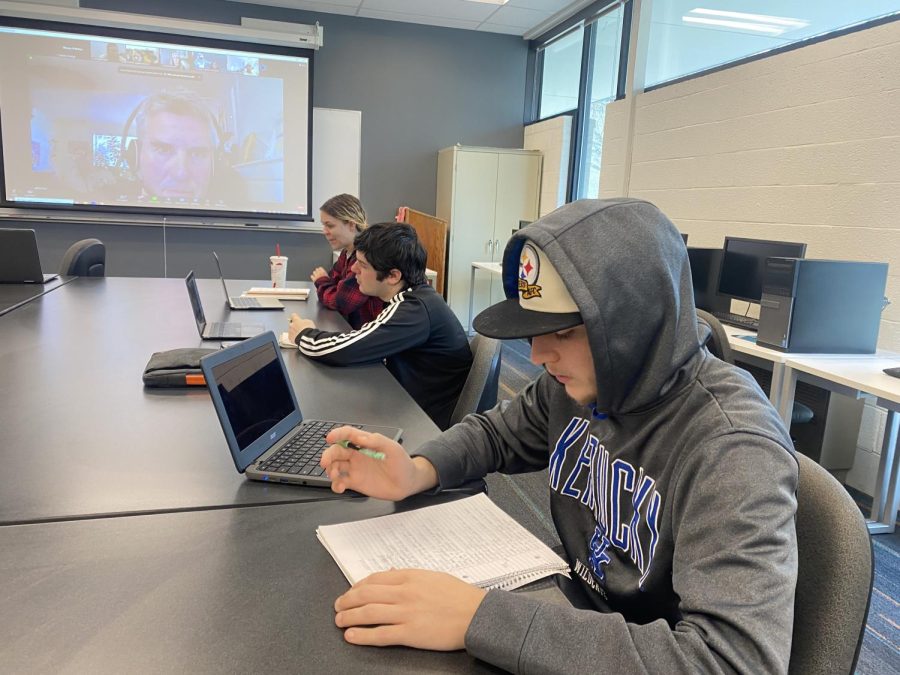Panelists explain Judaism as mix of religion, culture, history
Journalism students take notes during a Zoom presentation about Judaism last week.
February 10, 2023
A group of Jewish faculty and staff members on Thursday advocated for the college to cancel classes on high holy days.
An online event called “Courageous Conversations” focused on dispelling misconceptions about Judaism by inviting the panelists to discuss their personal experiences and their culture.
EMT instructor Eli Dinerman said Jewish people can be Conservative, Orthodox or Reform but “it doesn’t mean that one is more Jewish … or [has] a stronger belief in God” than the others.
AACC’s Office of Inclusion, Diversity, Equity, Access and Leadership hosted the online event, which drew an audience of approximately 100 students, staff and faculty.
Some of the panelists said they use vacation days when they want to be absent from school or work for the Jewish high holy days, like Rosh Hashanah—the Jewish New Year—and Yom Kippur, the day of atonement.
Physics professor Eric Fons said he spends those days in a “period of introspection and self-evaluation” and does not do any work.
But he said the has to “go through a lot of problems to make those arrangements” to miss his classes but keep them running.
The speakers said the college could be more understanding of Jews on campus by making it easier for faculty and staff to take time off for religious holidays, declining to schedule meetings on those days and allowing students to miss class so they can celebrate with their families.
“You don’t have to understand everything about Judaism, but if you can be understanding, that can go a long way,” IT support leader Becky Rhoads said.
Director of Adult Education and English Language Learning Dana Marron and psychology professor Rachelle Tannenbaum joined Dinerman, Fons and Rhoads on the panel.
The speakers agreed that Judaism is a mixture of religion and culture.
“The religious and spiritual part of it are very important,” Fons said. “But it is an ethnic identity as well. Its history and culture … have great meaning often to a lot of Jews, even who are not as observant, necessarily.”
Students said they found the speakers interesting.
“I like that they brought up the issue about days off for those high holy holidays because it brings attention to the Jewish people on campus and how they celebrate those days,” Devan Grubb-Hayes, who attends Chesapeake High School and AACC and is not Jewish.
“I wouldn’t say I learned more but it made me appreciate it more and it taught me to advocate for myself when it comes to securing days off to practice [my faith],” Izzy Chase, a Jewish first-year transfer studies student,said.
Izzy Chase, Devan Grubb-Hayes and Cole Popov contributed to this story.












